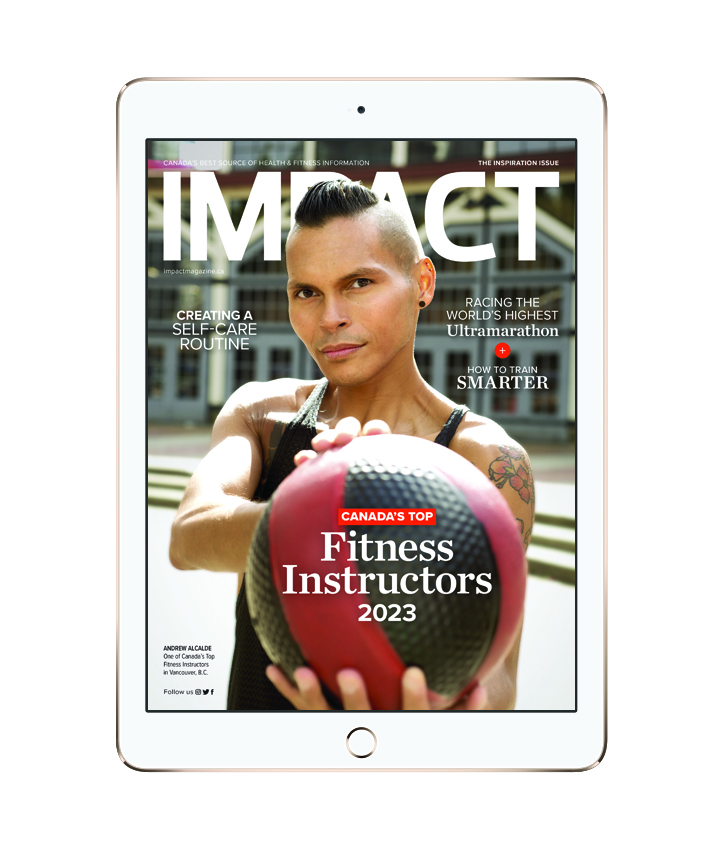
We know movement is good for our bodies. Yet, many of us still struggle to make it to the gym, or hit the path for our long runs consistently.
Keeping a training journal or diary can help to increase our commitment to our goals at all levels of development, from beginning to high performance.
A good training journal will promote a sense of accountability by monitoring daily progress. A journal can be used in a highly personalized manner that reflects an important form of “self-talk.” Personal thoughts and feelings can be shared in a manner that is rarely seen when sharing with other people. Out of this, a profile of what prepares us to perform mentally, technically and physically can be developed.
As a sport psychologist, I have used training journals extensively. It is not necessary to obtain an expensive system. A notebook or binder with loose-leaf pages works well. It may come as somewhat of a surprise that I continue to prefer paper journals that one can write in, put in a training bag, review and reflect on. It is my impression that this format increases our commitment as it serves as a physical reminder to train.
You may want to organize your journal around training cycles or training periods such as pre-season or off-season, or into blocks such as four 13-week blocks for the year. You may also want to set goals for the entire cycle and then set weekly goals that are evaluated each week, leading to an overall evaluation at the end of the cycle.
It is, however, a good idea to set goals that are relevant to your specific training program. This could include goals in domains that are physical, mental, technical, tactical, nutritional, recovery and regeneration, although there may not be entries for each domain every day. Remember that recovery, rest, regeneration and holidays are goals within an effective training program.
Three types of goals should be set: outcome, performance and process.
Outcome goals focus on results where the emphasis is on “winning and losing.” The concern here is that one can give their best effort, perform to the best of their ability and yet still not achieve their outcome goal. This can undermine their confidence in their ability to achieve their goals. An example would be attaining a “best ever” time in a marathon and yet finishing well back in the race in comparison to others.
Performance goals focus on output rather than outcome and should be emphasized. These are goals that are primarily under one’s control and can be achieved independently of the outcome. Successfully giving a best effort will enhance confidence in one’s skills. These goals should be realistic yet challenging.
Performance goals can be established in three domains: technical, physical and mental. An example would be someone doing resistance training through lifting weights in a gym. They might focus on their technique or form (technical), try to increase the number of repetitions or weight they are capable of achieving (physical), or use a breathing technique to help maintain their focus on the task (mental). An implication of this approach is that one can fail to achieve an outcome goal and yet be very pleased with their performance. Conversely, one can achieve an outcome goal and yet not be satisfied with their performance.
I would also encourage the setting of process goals which are those that are very much under our control and can directly affect our ability to perform well. Examples of these would include nutrition, rest, equipment, travel, injury management and, in this context, maintaining a training journal.
The shift from outcome to performance and process goals allows one to focus on competence rather than competition. The emphasis is on how we feel about ourselves and our own performance rather than comparing ourselves to others. This should increase the likelihood of adherence to a training program by providing us with specific, relevant reasons to continue.
Using a training journal to track our objectives should help in the following ways: increasing motivation and commitment to persist through challenges; identifying strategies for improved training effectiveness; avoiding overtraining injuries; allowing progress monitoring; and, importantly, increasing awareness of our accomplishments.
Recording training activities is important as they become part of a precise progress profile that an individual can refer to as they move forward with their sport or exercise program. A formal training journal is effective in helping to make this happen.
You May Also Like Training Plans

Read This Story in Our 2023 Inspiration Issue
Read about our 2023 Canada’s Top Fitness Instructors – our top 30 from across Canada! How to Train Smarter in 2023, Yoga Nidra for What Ails You, Racing the World’s Highest Ultramarathon, our favourite plant-based recipes and more!















